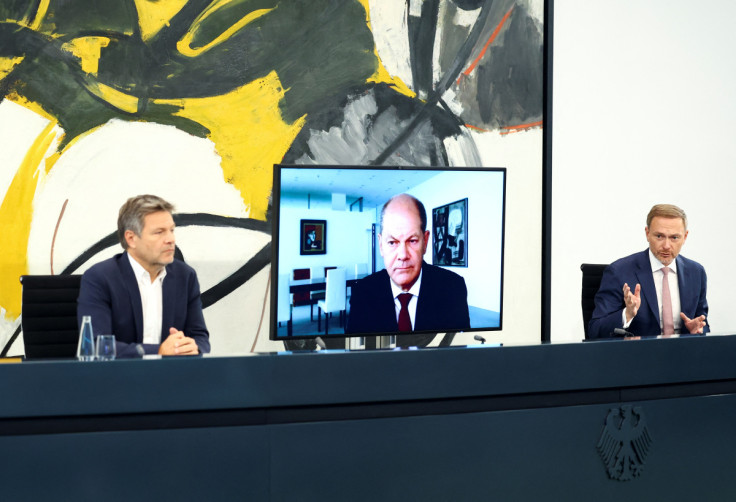Germany agrees 200 bln euro package to shield against surging energy prices
German Chancellor Olaf Scholz set out a 200 billion euro ($194 billion) "defensive shield" on Thursday to protect companies and consumers against the impact of soaring energy prices.

German Chancellor Olaf Scholz set out a 200 billion euro ($194 billion) "defensive shield" on Thursday to protect companies and consumers against the impact of soaring energy prices.
Europe's biggest economy is trying to cope with surging gas and electricity costs caused largely by a collapse in Russian gas supplies to Europe, which Moscow has blamed on Western sanctions following its invasion of Ukraine in February.
"Prices have to come down, so the government will do everything it can. To this end, we are setting up a large defensive shield," said Scholz, outlining the package.
Under the plans, which will be financed with new borrowing, the government will introduce an emergency price brake on gas and electricity and scrap a previously planned gas levy on consumers to avoid further price increases
Nuclear plants in southern Germany, previously due to close by the end of this year, will be able to keep running until spring 2023.
Berlin has suspended its limit on new debt of 0.35% of gross domestic product this year. Finance Minister Christian Lindner has previously said he wants to comply with the limit next year.
Lindner said on Thursday Germany would finance the relief package by taking on new loans, adding that the country's public finances were stable.
"We can put it no other way: we find ourselves in an energy war," said Lindner, adding:
"We want to clearly separate crisis expenditure from our regular budget management, we want to send a very clear signal to the capital markets."
The gas levy, which had been due to come into effect from Saturday and remain in place until April 2024, was conceived with a view to helping utilities cover the cost of replacing Russian supply.
However, the need for the levy came into question after the government's decision to nationalise Uniper, Germany's biggest Russian gas importer.
($1 = 1.0326 euros)
Copyright Thomson Reuters. All rights reserved.





